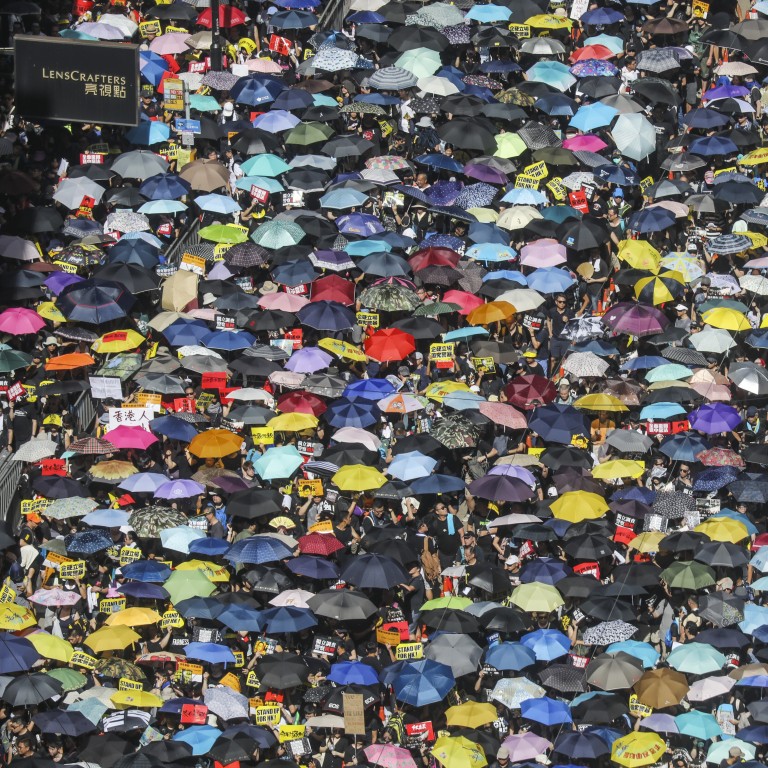
Hong Kong national security law: police ban July 1 march planned to protest against legislation
- Officers cite public health concerns and violence in previous demonstrations to ban the proposed gathering
- But the Civil Human Rights Front says it will appeal against the decision and will go ahead with planned actions
The Civil Human Rights Front, organiser of the July 1 march, said on Saturday it would appeal against the decision and would not withdraw its earlier calls for people to march from Victoria Park to government headquarters in Admiralty at 3pm on the day, even if the plea was dismissed.
“The police’s repeated suppression of people’s right to assemble sends a clear message to the world that human rights in Hong Kong have been eroded,” said Jimmy Sham Tsz-kit, the front’s convenor. “It could get even worse after the national security law is passed.”
Push for backdated Hong Kong security law with stiffer penalties
The force’s letter to the front also listed eight previous rallies it organised since June last year in which police observed violence during or after their dismissal.
“The force believes that even though [social-distancing measures] are put in place, the aim of safeguarding public order, public safety and protecting others rights and freedom will not be achieved,” police said.

The rally organiser earlier suggested adopting social-distancing measures such as implementing crowd control in a public park or at street corners, splitting the procession into phases, and marching on alternate lanes of the road.
Meanwhile, Chief Secretary Matthew Cheung Kin-chung replied to Sham in an email on Saturday, saying the government did not believe the planned march could be exempted from the rules.
Organisers expect traditional July 1 march in Hong Kong to be banned
While all eyes are on how the new law might affect protesters, Ip Kwok-him, a veteran Hong Kong delegate to the National People’s Congress, the country’s legislature, warned people against displaying flags of other countries or advocating Hong Kong independence.
“[Such acts] must violate the national security law, as the legislation was planned to target those who advocate Hong Kong independence,” he said.
Separately, the Appeal Board on Public Meetings and Processions on Saturday afternoon dismissed the pleas of two opposition district councillors who had applied to hold rallies on Sunday and July 1. Police earlier denied them permission to organise the rallies.
After hearing arguments from both sides, the board said the rallies would pose “serious threats to public order” while the organisers’ proposed social-distancing measures were “impractical”.
Andy Chui Chi-kin, one of the applicants, decided to call off the rallies planned for both days and vowed to explore other forms of resistance against the security law with opposition councillors.

